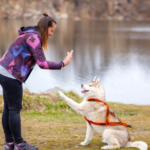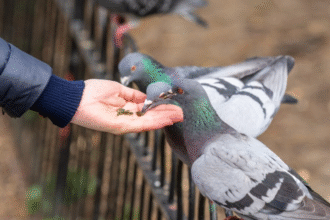Bringing a puppy into your home is an exciting and life-changing decision. Whether you’re a first-time pet owner or adding a new member to your family, it’s important to be well-prepared for the responsibilities and joys that come with owning a puppy. To help you navigate this journey, we’ve put together a list of essential tips that will guide you in choosing the right puppy and ensuring a smooth transition into your home. From selecting the perfect breed to preparing your living space, these tips will set you up for a successful and happy relationship with your new furry friend.
Find a Reliable Breeder
One of the most important decisions you’ll make when buying a puppy is choosing a breeder. A reliable and reputable breeder will ensure that your puppy is healthy, well-socialized, and free from genetic health issues. Do your research and ask for recommendations from trusted sources to find a responsible breeder who prioritizes the welfare of their dogs.
When meeting with a potential breeder, be sure to ask questions about the puppy’s parents, living conditions, and health history. They should also provide you with documentation such as health certificates and registration papers. The folks at pettitookc.com note that reputable breeders will also be transparent about any potential health concerns or behavioral issues that may arise in their specific breed. It’s crucial to choose a breeder who is dedicated to producing healthy and well-tempered puppies.
Consider the Breed
Choosing the right breed for your lifestyle is crucial when bringing a new puppy into your home. Each dog breed has its own unique characteristics, energy levels, and care requirements. For instance, a high-energy breed like a Border Collie requires plenty of exercise and mental stimulation, while a more relaxed breed like a Basset Hound might be satisfied with shorter walks and lots of lounging. It’s important to research the breed thoroughly to ensure it matches your living situation, activity level, and family dynamics.
Consider if any family members have allergies, as some breeds are more hypoallergenic than others. Think about the size of the dog and whether your living space can comfortably accommodate them. Making an informed decision about the breed will help you find a puppy that fits seamlessly into your family and lifestyle.
Puppy-Proof Your Home
Before bringing your new puppy home, it’s essential to prepare your living space to ensure it’s safe and welcoming. Start by removing any hazardous items that a curious puppy might chew on or ingest, such as electrical cords, small objects, and toxic plants. Make sure to secure cabinets and drawers that may contain cleaning supplies or food items that could be harmful to your new pet.
Create a designated area for your puppy with a comfortable bed, toys, and water. This space will serve as their safe haven where they can relax and feel secure. Puppy-proofing your home not only protects your puppy but also helps to establish boundaries and routines that are crucial for their development and behavior.
Vet Visits and Health Care
Scheduling a vet visit as soon as you bring your new puppy home is an essential step in ensuring their health and well-being. A veterinarian will provide a thorough health check, administer necessary vaccinations, and discuss a vaccination schedule tailored to your puppy’s needs. It’s also a good time to talk about preventive measures such as flea, tick, and heartworm treatments.
Establishing a relationship with a vet early on will make it easier to address any health concerns that may arise in the future. Routine check-ups and preventive care are key to keeping your puppy healthy and can help identify any potential issues before they become serious. Invest in quality healthcare to give your puppy the best start to their life.
Training and Socialization
Training and socialization are crucial components of raising a well-behaved and confident puppy. Start with basic obedience commands such as sit, stay, and come. Consistent training sessions, positive reinforcement, and patience will help your puppy understand what is expected of them. Enrolling in a puppy obedience class can also be beneficial for both you and your puppy.
Socialization involves exposing your puppy to a variety of people, environments, and other animals in a positive manner. This helps them develop into a well-adjusted adult dog. Take your puppy for walks, visit the dog park, and invite friends over to meet them. Well-socialized puppies are less likely to develop behavioral problems and are generally happier and more adaptable.
Proper Nutrition
Feeding your puppy a balanced and nutritious diet is essential for their growth and overall health. Puppies have different nutritional needs compared to adult dogs, so it’s important to choose a high-quality puppy food that meets these requirements. Consult with your veterinarian to select the best diet for your puppy’s breed, age, and health status.
Establishing a feeding routine can help regulate your puppy’s digestion and prevent overfeeding. Typically, puppies need to be fed several small meals throughout the day. Be cautious about giving too many treats and avoid feeding human food that can be harmful to dogs. Providing proper nutrition is a foundational aspect of your puppy’s health and development.
Welcoming a puppy into your home is an exciting and rewarding experience. With proper preparation, care, and training, you can set your puppy up for a happy and healthy life with you. Remember to always prioritize the well-being of your new furry companion and cherish every moment as they grow and become an integral part of your family.














